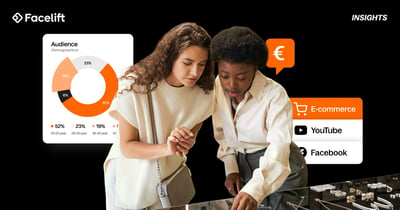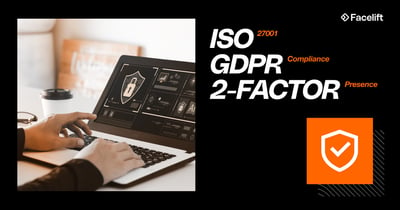Can you use a Facebook dummy page for your business account?
In a word: no!
Meta's business suite, which includes Facebook, Instagram, WhatsApp, and Messenger, provides a central location from which businesses or organizations can manage all of these social media presences. They are connected to share metrics, and it makes cross-posting very easy to do as well.
It's highly convenient and provides a wealth of detailed analytics data that you can use to improve your social media game.
However, one huge downside and potential security concern to Meta Business Suite is that you need to use a real Facebook account or Instagram business page to access it. In turn, creating Instagram and Facebook pages also requires you to use a real user account - a verifiable person has to own the page and be an administrator.
For example, let's say you want to create a new Facebook page for your company. Someone, perhaps one of your social media managers, needs to build and operate that page, but perhaps they don't want to use their personal account, maybe they don't have a personal account, or perhaps your company is not on board with allowing its employees to use personal accounts with company property at all.
Unfortunately, your organization may not be left with much recourse. Creating and using a fake Instagram account or Facebook dummy account for your business page or Meta Business Suite is against their terms of service, so we do not recommend trying.
If Facebook gets wind of this, it could result in the deletion of that account (and maybe your page as well!). So, we recommend still using regular personal accounts for your page management.
So what are your options?
There's really only one option.
Sorry to say, you'll need to use a real Facebook or Instagram account to manage your Meta Business Suite profiles, period. A fake or dummy account could result in the account and possibly your business page(s) being shut down, so it's better not to risk it!
But we can reassure you that it's not the end of the world and that you should still go ahead with your real account.
Luckily, there is no visible, public link between a page administrator and their personal profile. There is also no public indicator of who is behind certain content. Personal Facebook or Instagram users' names or info are not visible to page visitors, and no changes are made to your employees' private accounts through page activity.
The only noticeable change is that your page managers may receive some page notifications on their private accounts. These can be switched off in page settings if they wish not to receive them.
But what if you don't have a willing employee who wants to use their personal account? What if management isn't comfortable with that?
Someone will have to make one. Nobody says this person has to actually use the account, but it must be linked to a verifiable living human being with a pulse, a phone number, and an email address. You can of course use the business number and email for this account.
Is it likely that Meta will come calling to confirm your account's authenticity? No, in my 10 years of managing Facebook pages, I've never had Meta look into anything - but then again, I've never used a dummy Facebook account. I've always used my own.
Why risk it?
To address the issue of using personal accounts and devices to handle your company's social media profiles, we wrote an article to address the risks and benefits of BYOD (Bring Your Own Device) culture.
Facelift helps keep your data and users safe
If you have security concerns about using employees' personal accounts to manage business profiles, maybe Facelift can help! We can't secure their accounts for you, but we do take a lot of steps to ensure a high degree of data protection, which makes us popular among customers with high regulatory requirements!
Fortunately, Facelift does not require users to log in to their Facebook or Instagram (or any other) account to function.
Even better, Facelift does not require all users to have their own personal accounts linked to their company pages. It only requires one person with Facebook page administrator status to connect their favorite Meta platform to Facelift.
For example, let's say your Facelift account has ten user seats. Only one person requires a Facebook account to connect your company's Facebook page to Facelift. This person can use their own page to make the connection, and the other 9 team members will not need their own credentials to manage your Facebook page via Facelift. This way.
After that, unlimited Facelift users, regardless of "official" Facebook administrator status, will be able to use the platform via Facelift, making this a great way to help your employees keep their private and professional online activities separate.
If you want to learn more about how Facelift protects your organization's data security, the integrity of your social media pages and learn some best practices for keeping your social media pages and team members safe, we wrote a longer guide to security of Facelift and social media that addresses this issue in more detail.





